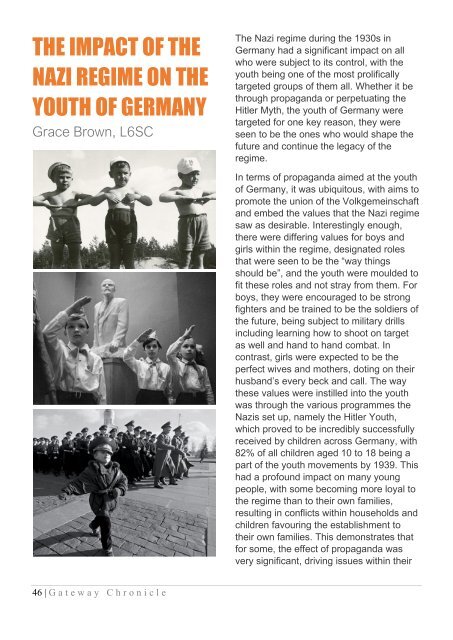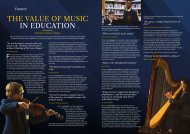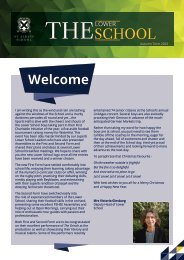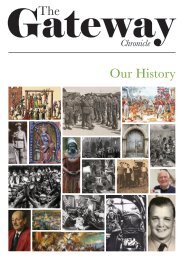Gateway Chronicle 2022
You also want an ePaper? Increase the reach of your titles
YUMPU automatically turns print PDFs into web optimized ePapers that Google loves.
THE IMPACT OF THE<br />
NAZI REGIME ON THE<br />
YOUTH OF GERMANY<br />
Grace Brown, L6SC<br />
The Nazi regime during the 1930s in<br />
Germany had a significant impact on all<br />
who were subject to its control, with the<br />
youth being one of the most prolifically<br />
targeted groups of them all. Whether it be<br />
through propaganda or perpetuating the<br />
Hitler Myth, the youth of Germany were<br />
targeted for one key reason, they were<br />
seen to be the ones who would shape the<br />
future and continue the legacy of the<br />
regime.<br />
In terms of propaganda aimed at the youth<br />
of Germany, it was ubiquitous, with aims to<br />
promote the union of the Volkgemeinschaft<br />
and embed the values that the Nazi regime<br />
saw as desirable. Interestingly enough,<br />
there were differing values for boys and<br />
girls within the regime, designated roles<br />
that were seen to be the “way things<br />
should be”, and the youth were moulded to<br />
fit these roles and not stray from them. For<br />
boys, they were encouraged to be strong<br />
fighters and be trained to be the soldiers of<br />
the future, being subject to military drills<br />
including learning how to shoot on target<br />
as well and hand to hand combat. In<br />
contrast, girls were expected to be the<br />
perfect wives and mothers, doting on their<br />
husband’s every beck and call. The way<br />
these values were instilled into the youth<br />
was through the various programmes the<br />
Nazis set up, namely the Hitler Youth,<br />
which proved to be incredibly successfully<br />
received by children across Germany, with<br />
82% of all children aged 10 to 18 being a<br />
part of the youth movements by 1939. This<br />
had a profound impact on many young<br />
people, with some becoming more loyal to<br />
the regime than to their own families,<br />
resulting in conflicts within households and<br />
children favouring the establishment to<br />
their own families. This demonstrates that<br />
for some, the effect of propaganda was<br />
very significant, driving issues within their<br />
46 | G ateway <strong>Chronicle</strong>


















